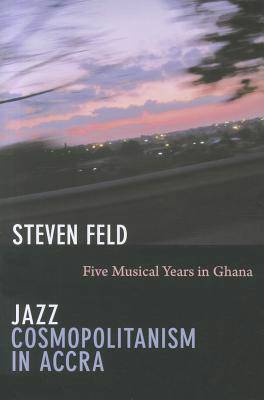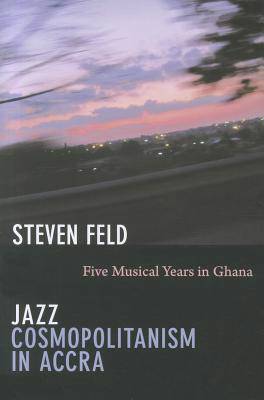
- Afhalen na 1 uur in een winkel met voorraad
- Gratis thuislevering in België vanaf € 30
- Ruim aanbod met 7 miljoen producten
- Afhalen na 1 uur in een winkel met voorraad
- Gratis thuislevering in België vanaf € 30
- Ruim aanbod met 7 miljoen producten
Zoeken
€ 56,45
+ 112 punten
Omschrijving
In this remarkable book, Steven Feld, pioneer of the anthropology of sound, listens to the vernacular cosmopolitanism of jazz players in Ghana. Some have traveled widely, played with American jazz greats, and blended the innovations of John Coltrane with local instruments and worldviews. Combining memoir, biography, ethnography, and history, Feld conveys a diasporic intimacy and dialogue that contests American nationalist and Afrocentric narratives of jazz history. His stories of Accra's jazz cosmopolitanism feature Ghanaba/Guy Warren (1923-2008), the eccentric drummer who befriended the likes of Charlie Parker, Max Roach, and Thelonious Monk in the United States in the 1950s, only to return, embittered, to Ghana, where he became the country's leading experimentalist. Others whose stories figure prominently are Nii Noi Nortey, who fuses the legacies of the black avant-gardes of the 1960s and 1970s with pan-African philosophy in sculptural shrines to Coltrane and musical improvisations inspired by his work; the percussionist Nii Otoo Annan, a traditional master inspired by Coltrane's drummers Elvin Jones and Rashied Ali; and a union of Accra truck and minibus drivers whose squeeze-bulb honk-horn music for drivers' funerals recalls the jazz funerals of New Orleans. Feld describes these artists' cosmopolitan outlook as an "acoustemology," a way of knowing the world through sound.
Specificaties
Betrokkenen
- Auteur(s):
- Uitgeverij:
Inhoud
- Aantal bladzijden:
- 328
- Taal:
- Engels
Eigenschappen
- Productcode (EAN):
- 9780822351627
- Verschijningsdatum:
- 9/03/2012
- Uitvoering:
- Paperback
- Formaat:
- Trade paperback (VS)
- Afmetingen:
- 155 mm x 231 mm
- Gewicht:
- 517 g

Alleen bij Standaard Boekhandel
+ 112 punten op je klantenkaart van Standaard Boekhandel
Beoordelingen
We publiceren alleen reviews die voldoen aan de voorwaarden voor reviews. Bekijk onze voorwaarden voor reviews.











